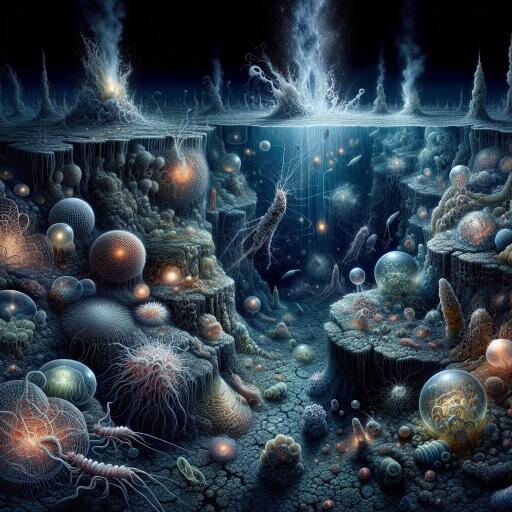
New Insights into Early Adaptation of Marine Organisms to Deep-Sea Environments
In a groundbreaking study, scientists have uncovered profound insights into the mechanisms through which marine organisms acclimate to the unique and extreme conditions found in the deep-sea environment. This research highlights the capabilities of shallow-water species, particularly mussels, to adjust to life at great ocean depths.
The investigation focused on the mussel species Mytilus galloprovincialis, examining their adaptation when subjected to deep-sea conditions characteristic of the Site-F cold seep located in the South China Sea at a depth of 1,119 meters. The deep sea spans over 90% of the planet’s marine terrain and is a reservoir of biodiversity that is still being comprehensively explored and understood. Many organisms residing in these extreme depths are believed to have ancestors from shallower waters, making their evolutionary adaptations a pivotal area of research.
Researchers employed state-of-the-art in situ sampling and preservation approaches to minimize the potential for stress-induced alterations in the collected samples. This allowed for an accurate depiction of the mussels’ physiological responses as they adapted to these foreign environments. The adoption of transcriptional and metagenomic analyses provided a detailed view into the genetic expression changes occurring during this adaptation phase.
Analysis revealed significant gene expression changes in various biological pathways, including those involved in stress response, immune defense mechanisms, homeostasis maintenance, and energy metabolism. These discoveries were further enriched by integrating publicly available datasets that helped establish a more comprehensive understanding.
Interestingly, after enduring deep-sea conditions for a duration of ten days, the shallow-water mussels, along with their associated microbial communities, exhibited many characteristics similar to those of native deep-sea mussels. This underscores a credible host-microbiome convergence as a central adaptive response.
An essential discovery within this study was the dominance of methanotrophic bacteria in the shallow-water mussels post-exposure. These bacteria are key symbionts frequently found in deep-sea mussels. Their abundance was linked to significant gene expression modifications concerning immune responses and endocytic processes. This finding emphasizes the mutually beneficial relationship that evolves between the mussels and their microbial partners during the adaptation process.
These findings illuminate the profound genetic and microbiome interplay as marine organisms confront and adapt to such extreme environments. The study significantly contributes to the understanding of the intricate adaptive strategies of marine life, offering valuable insights for biodiversity conservation efforts and ecological research endeavors.
Overall, this research provides a pivotal step in comprehending the resilience of marine ecosystems and their inhabitants. As our oceans continue to face unprecedented challenges, understanding these adaptive phenomena offers hope and guidance for preserving marine biodiversity in the face of deep-sea exploitation and climate change.





Leave a Reply